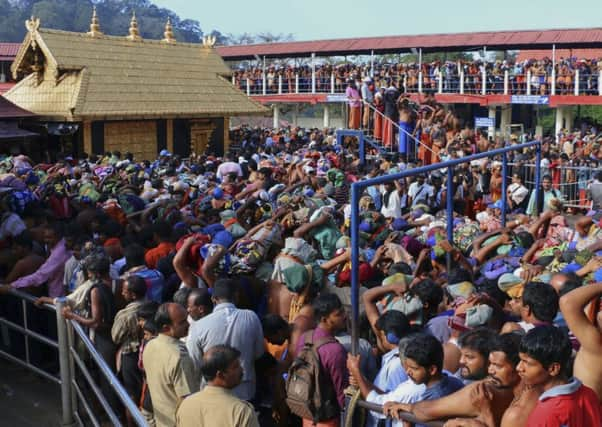Plastic containers banned from Hindu pilgrimage temple


Officials have banned all plastic containers from the Sabarimala temple, set deep in the dense jungle of tiger conservation park in Kerala state.
Pilgrimages throughout the year attract some 100 million worshippers, though women of childbearing age are forbidden from entering.
Advertisement
Hide AdAdvertisement
Hide AdFor years the traffic took a heavy toll. Pastures were strewn with crisp packages and water bottles. Plastic bags blown into the air caught on branches and hung from the forest canopy. Rivers became choked with clothing discarded as people bathed away their sins.
Last year, traces of plastic were found in the digestive tracts of dead samba deer and at least one elephant, prompting Kerala’s forest department to petition a court last year for the ban on disposable plastic items.
Such bans have been imposed in various parts of India, including the capital of New Delhi, with little effect as people flout new rules and authorities do little to crack down. The famed Himalayan pilgrimage to the Amarnath stalagmite housed in a cave atop a mountain has become well known for the trash left on the mountain trail.
But visitors and officials in Sabarimala say there is already a noticeable difference here.
Pilgrims readily hand over their plastic bags and bottles, about 90 per cent of which is recycled and the rest incinerated. District workers collected 1.2 tonnes of plastic rubbish this year from busloads of visitors during the latest pilgrimage, which ended yesterday and drew some five million people.
“There is a palpable change,” said pilgrim Dinoj, who has made the visit every year for the past ten years. “It was becoming the need of the hour for an anti-plastic drive here.”
Still, there is room for improvement, and officials may start frisking pilgrims for plastic next year rather than relying on them to voluntarily give it up.
“We aim to extend the mission further, to possibly also include fines,” Pathanamthitta district magistrate Harikishore said.